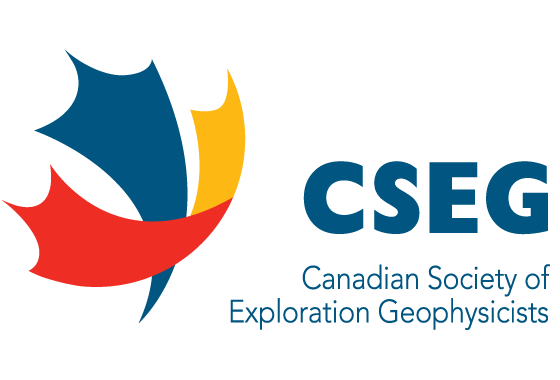Warner Loven - 2009
CSEG Medal Recipient Citation for Warner Loven
by Maureen Loven
 My father, Warner Loven, has had a couple claims to fame during his lifetime of 81 years. He's been struck by lightning while playing baseball, he's played poker with blues legend B.B. King and now his third claim to fame – he's receiving the CSEG Medal in recognition of his life-time contribution to exploration geophysics.
My father, Warner Loven, has had a couple claims to fame during his lifetime of 81 years. He's been struck by lightning while playing baseball, he's played poker with blues legend B.B. King and now his third claim to fame – he's receiving the CSEG Medal in recognition of his life-time contribution to exploration geophysics.
Warner graduated from the University of Alberta with a bachelor of science, majoring in Geology in 1951 and soon after joined Western Geophysical where he started his career as an assistant computer. The "early years" in Warner's career, from 1951 to 1961, were spent in the field where he worked as a seismic crew manager and party chief. Unwilling to sacrifice his fam-ily time, dad travelled all over the western provinces with our mother, Joy, and us kids in tow. In nine years, our family moved 42 times before finally settling in Calgary. Four years after moving to the city in 1961, dad was promoted to vice-president of operations. His job still entailed a lot of traveling, but they were only short stints to visit seismic crews "up north" or trips to Houston, Texas for meetings with his boss at Western's corporate head office. It was on a return flight from one of these business trips where he played poker with B.B. King.
At Western Geophysical, Warner was one of the pioneers of exploration in the high Arctic. He was party chief to one of the first crews working north of the Arctic circle in 1960. At that time, the usual rotation in the winter was three months straight with harsh field conditions, working in 40 to 60 below temperatures. While working in Inuvik, the crews only outside link to the rest of the world was a telegraph station, single side band radio and a single engine plane on skis flying in supplies. These long absences from the family was hard on both the men and the families. When the men came home it was like a homecoming scene from The Waltons. We kids, my brothers and I, couldn't get enough of our dad. We'd follow him everywhere, even into the bathroom to watch him shave. "Dad always had someone sitting on his lap," recalls mom.
Warner stayed at Western Geophysical for 31 years until 1983 and then went to a small Canadian company called Pacer Exploration. After two years, he joined Sonics Exploration which was later purchased by Geco and then Schlumberger, who eventually bought out Western, forming Western-Geco where dad remained until his retirement in 2001.
During his time as VP of Operations at Western Geophysical, Warner, like many of his peers, worked tenaciously and took enormous pride in his success at growing the business. When Warner took over as VP in 1965, Western worked out of a small office in downtown Calgary which had a single bay shop with a total floor space of 4,400 square feet. A second office was opened in 1970 on Blackfoot Trail and finally in 1981, Western opened their new state-of-art fa-cility which included a data processing center, warehouse and shop complex, totaling an expansion of 91,000 square feet.
Believing in the viability of the Canadian geophysical industry, Warner fought hard with the Houston brass to expand the operations in Canada to include a state of the art data processing center. He was successful and in 1971 Western Geophysical opened its first center in Canada. Warner had the last laugh over the fellows in Houston who said that the Canadian industry could not sustain another processing center. WesternGeco is still processing data in Calgary today.
One of the most satisfying jobs that Warner successfully bid on was a five year contract with the Canadian International Development Agency (CIDA) in Pakistan. Under the contract, Western Geophysical built two vibrator crews, a dynamite crew, processing center and then transported it all to Pakistan. The three crews as well as the processing center were staffed by Canadians who operated the equipment and trained the local Pakistanians. In those days one of the goals of CIDA was sustainable development in the countries that received aid from Canada.
Warner was instrumental in establishing the Canadian Association of Geophysical Contractors and was appointed first president of the CAGC, which plays a prominent role in today's oil and gas industry. Throughout Warner's prolific career, he was known for his integrity and generosity and has made a lasting impact in the Canadian seismic industry. Like most people who've been involved in the industry for any length of time, Warner has weathered the ebbs and tides. "He had a sense of obligation to the people in seismic; he didn't abandon them when things got tough," said Ken Lengyel, who has worked with Warner for several years and is now his son-in-law.
As a leader in the industry and as my father, Warner Loven, has always been someone to rely on for advice, stability and reliability. He was always well-liked for his kindness and generosity and highly respected among his peers. He was someone you could turn to in a crisis and be counted on for advice, a job or a warm meal. Warner served as a boss, a mentor and friend to many people in the Canadian geophysical field. It is with great pride and honor that dad is this year's recipient of the CSEG medal for his contribution to the seismic industry.

Celebrating his 81st birthday with grand-daughter Jenna.
Photo courtesy Maureen Loven.




